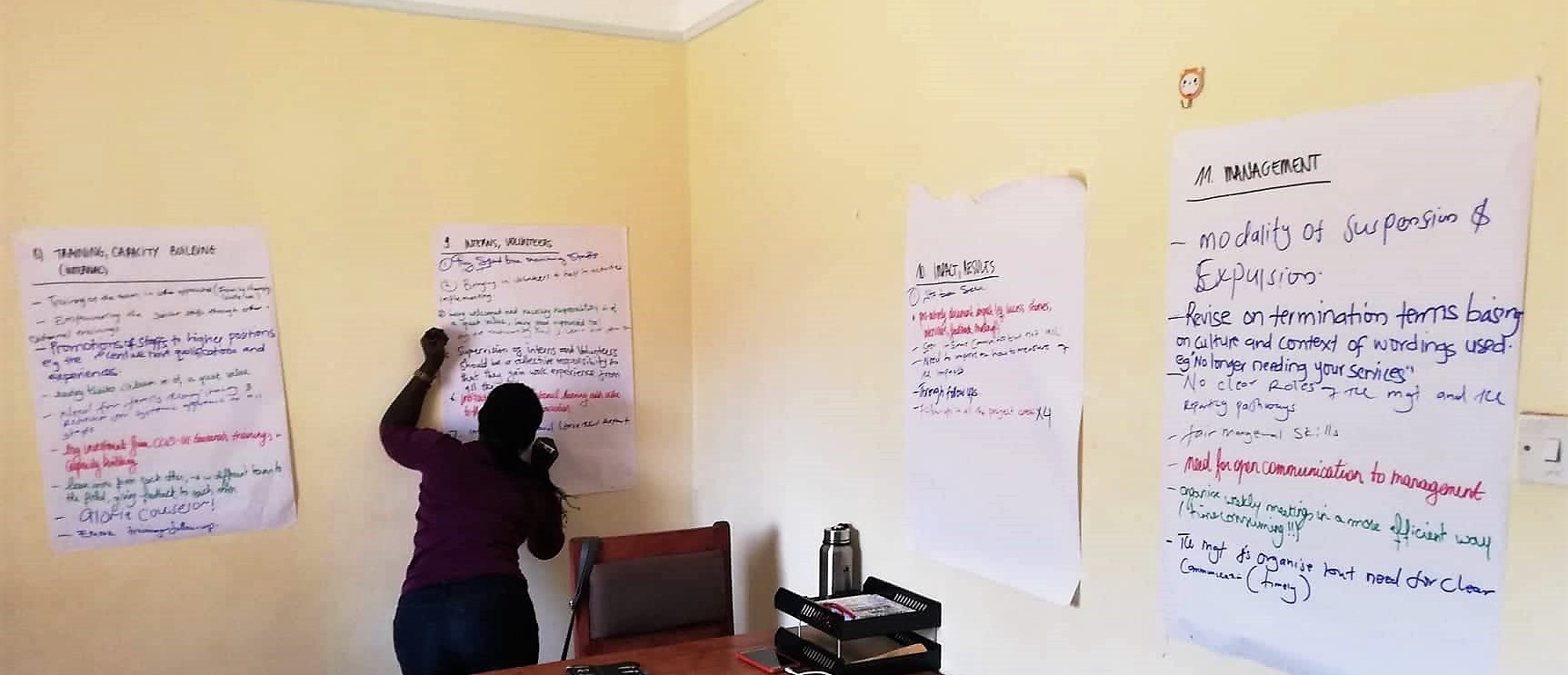WAR-TRAUMA, ATTACHMENT AND RISK BEHAVIOUR IN WAR-AFFECTED ADOLESCENTS IN NORTHERN UGANDA
Country
Uganda
05/07/2009 - 28/01/2014
Belgian Technical Cooperation (BTC)
The effects of war on children’s and adolescents’ mental health during periods of war and its aftermath are well documented in literature, although the vast majority of these studies are focusing on PTSD-symptoms. Nevertheless, comorbidity of PTSD with other mental health problems, such as anxiety, depression and aggression is more and more widely recognized, and co-morbidity of psychological symptoms may be the result of interaction of the number, nature and duration of traumatic experiences along with demographic and developmental factors. Adolescents who experience war-related trauma are at risk for a range of negative outcomes, including internalising ( posttraumatic stress disorder, other anxiety disorders, depression) and externalising (e.g. risk behaviours) problems. Using a culturally valid approach to adapt the instruments, this project explores war-related trauma and attachment, and how these influence risk behaviour in adolescents in a non-western post conflict context so as to propose appropriate clinical and intervention recommendations.
SOCIAL CONTEXT
The study will be done in Gulu district northern Uganda which has experienced prolonged armed conflict between the government of Uganda and the LRA rebels. It explores war-related trauma and attachment, and how these influence risk behaviour in adolescents in a non-western post conflict context.
OBJECTIVES
(1) To examine the relationship between war trauma, attachment and risk behaviour;
(2) To determine to what extent peer/parent attachment relationships serve as moderators of association between war-trauma and risk behaviours.
(3) To explore the phenomenology of different presentations of trauma and risk behaviour in war-affected adolescents.
(4) To explore factors associated with reduction or persistence of risk behaviour in a clinical sample of war-affected adolescents.
(2) To determine to what extent peer/parent attachment relationships serve as moderators of association between war-trauma and risk behaviours.
(3) To explore the phenomenology of different presentations of trauma and risk behaviour in war-affected adolescents.
(4) To explore factors associated with reduction or persistence of risk behaviour in a clinical sample of war-affected adolescents.
PROJECT DESCRIPTION
This study is being carried out in northern Uganda among school going adolescents who have experienced prolonged armed conflict. The study uses a mixed method research design, including both quantitative and qualitative methods. Three study phases will be carried out: a) a cultural adaptation of questionnaires to local context,(b) quantitative survey and(c) The validity of these questionnaires will also be studied with support of the data out of study a and b. From April 2010 to October 2010 we undertook in northern Uganda cultural adaptation of instruments and questionnaires with the aim of developing new questionnaires and/or adapting existing questionnaires on war-related traumatic experiences, socio-demographic variables, attachment, internalising problems and risk behaviours to the specific cultural context of Northern Uganda. We utilise the method as developed by Mels and colleagues 2009’s cross-cultural adaptation study in emergency conflict settings to adapt following questionnaires to the local cultural and post conflict context: Hopkins Symptom Checklist-37A (Bean et al., 2007) and Impact of Events Scale – Revised (Weiss & Marmar, 1997) , the Inventory of Parental and Peer Attachment (IPPA) (Armsden & Greenberg, 1987) the Youth Self Report (YSR) (Achenbach, 1992) and Stressful war and adverse childhood events questionnaire(Centre for Children in Vulnerable Situations, CCVS). After adaptation of the questionnaires, it was reviewed by the research team CCVS and a pilot testing of the test battery completed among school going adolescents aged between 15-21 years old. The second and main study examines the relationships between war-related traumatic experiences, peer and parental attachment and risk behaviours in adolescence to be done during the period September 2010 to October 2010 with atleast 500 war-affected secondary school-going adolescents in northern Uganda aged 15–21 years old completing self-report questionnaires as resulted from study 1.
